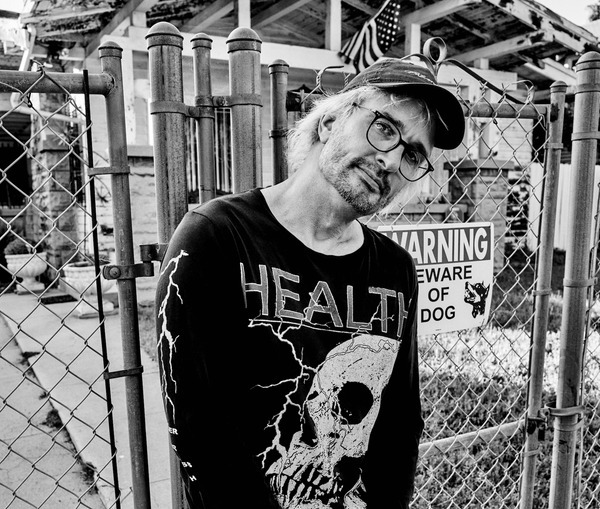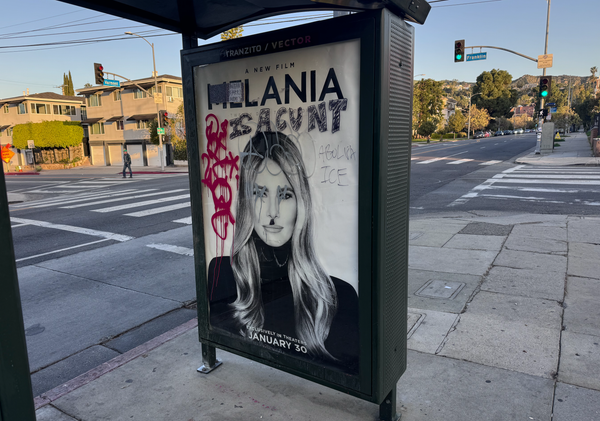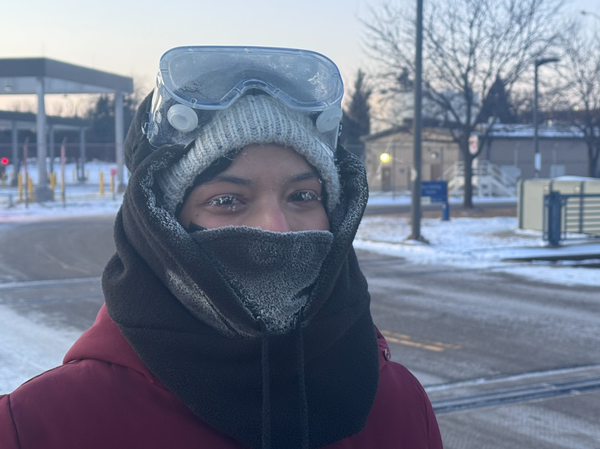Faking It: QAnon from the Inside
"QAnon feels less whimsical than it used to, and now feels much more streamlined & ready for the mainstream. And more likely to inspire people to commit acts of violence."
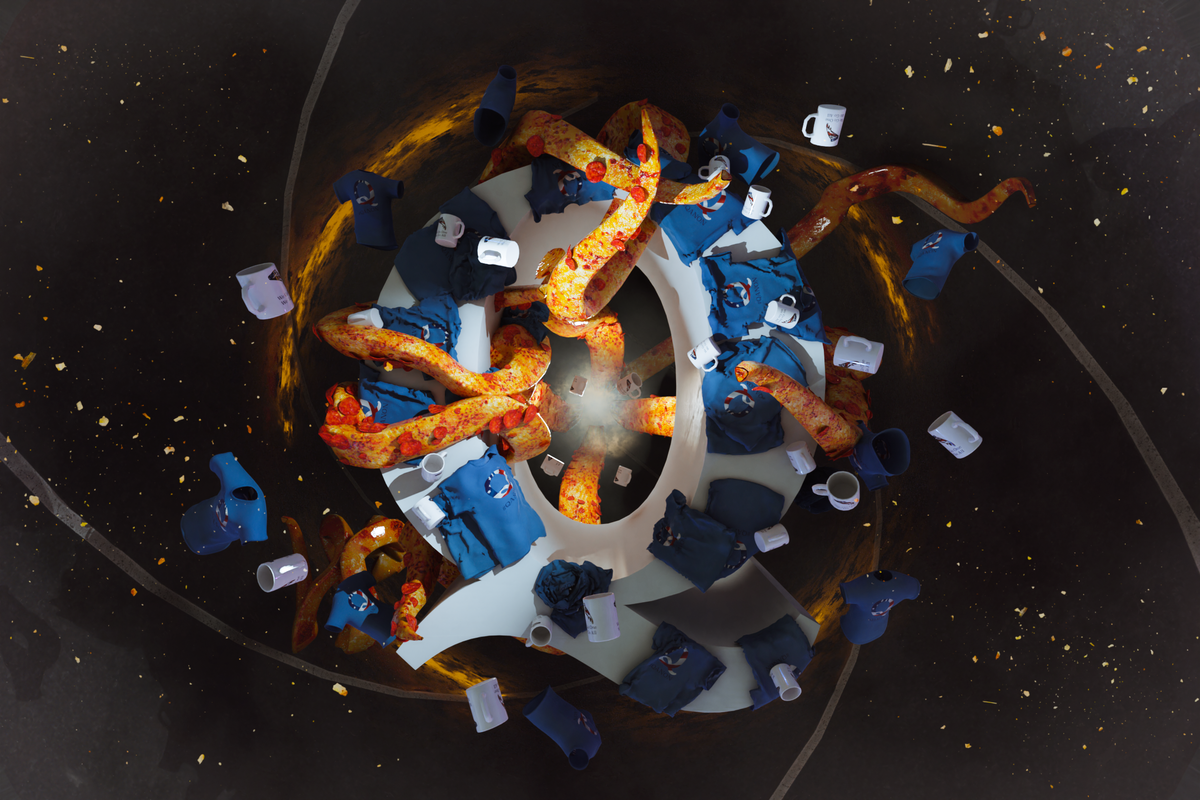
It’s a big fat cosmic Webworm today.
Today I talk to someone who’s been observing QAnon followers from the inside — by creating a social media persona that reflects “a classic conspiracy-minded divorced dad.”
But before we meet the guy who’s been faking belief in QAnon, selling Q merchandise and just generally getting down and dirty with the Q-heads, I guess it pays to look at how much of a beast QAnon actually is.

Much kudos to Richard Parry for illustrating today’s newsletter. Lil’ collaborations like this are all thanks to Webworm members.
All of Webworm’s conspiracy coverage remains free, thanks to members. I think it’s important this stuff goes as far and wide as possible. Thankyou!
How much of a beast is QAnon?
Last month I interviewed Joseph Uscinski, Associate Professor of Political Science at the University of Miami, who told me his polls “have found no growth [in QAnon belief] whatsoever.”
Counter that with the Daily Kos/Civiqs poll released this month, which said the complete opposite:
Awareness of QAnon has grown substantially since one year ago. In July 2019, 35% of Americans had never heard of QAnon — that number has fallen to 14% now. For Republicans, greater awareness has led to greater support. The percentage of Republicans who believe that the QAnon theory is partially or mostly true has grown from 46% one year ago to 56% today.
Who to believe? From what I’ve observed over the last year — in both the United States and New Zealand — I think the Daily Kos/Civiqs poll speaks to the reality I’m living in.
In amongst all the believers are the grifters, the trolls and the posers
They’re deep inside the QAnon community, choosing to interact with it every day — not because they believe in any of it — but because they know it’s a whole big load of trash.
In today’s Webworm I talk to a man who set up a QAnon twitter account earlier this year with the purpose to observe the community from the inside.
He started by retweeting QAnon material, then started doing his own stuff. Utter bullshit, created and curated for the QAnon masses. There were a lot of hashtags involved.
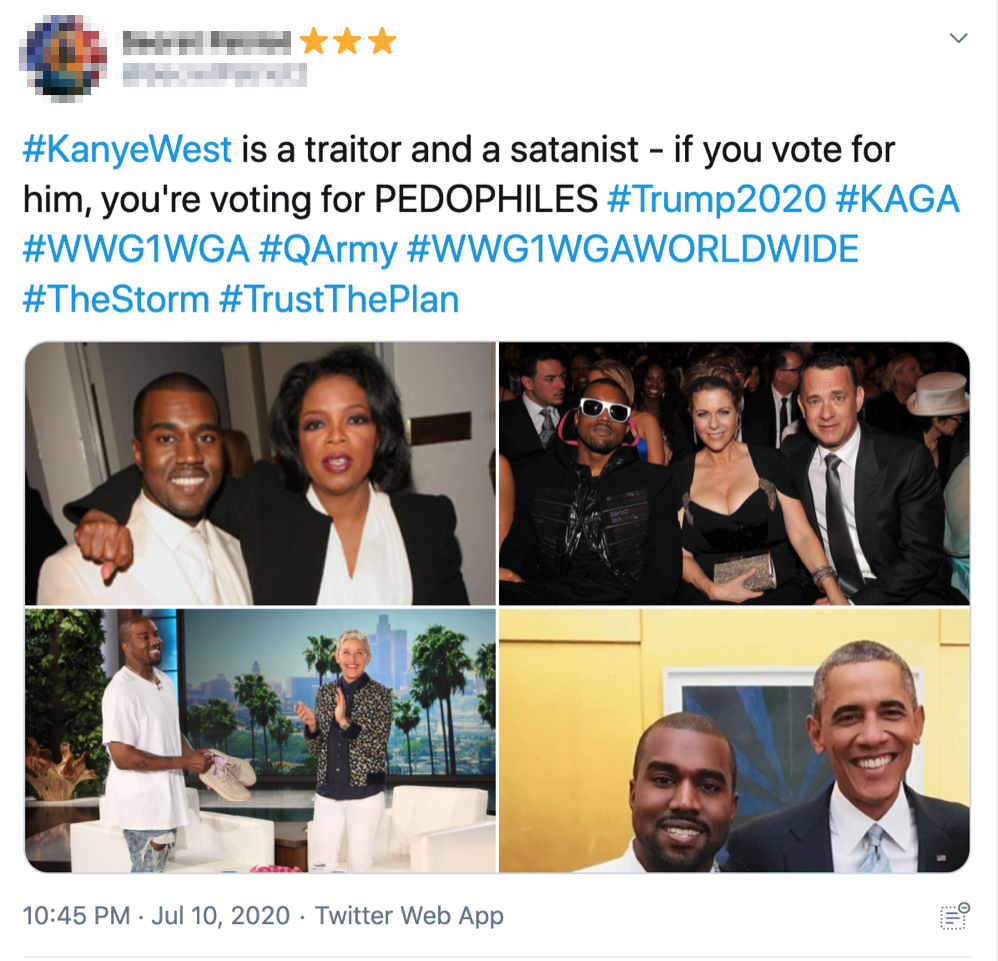
And hundreds of people started following him. Then thousands.
So he started to interact with them. Then he started selling QAnon merchandise. Tee shirts, and some mugs.
My initial response was to scream “GRIFTER!” at him, but he made it clear he’s not selling a lot, and he’s primarily doing this to learn.
“I think it’s probably important to note here that I’m a socialist, as that will shape some of my answers, and in particular I guess I’d say I vaguely associate myself with the ‘Dirtbag Left’, particularly in my fascination with interesting ‘characters’ and groups of people online, and in my distrust of many of the institutions that some people from a liberal point of view think will be able to save us.”
I chose not to name him, because QAnon types don’t necessarily dig his kind of behaviour.
The only other fact you need to know about him is that he owns a cat.
A conversation with a QAnon grifter
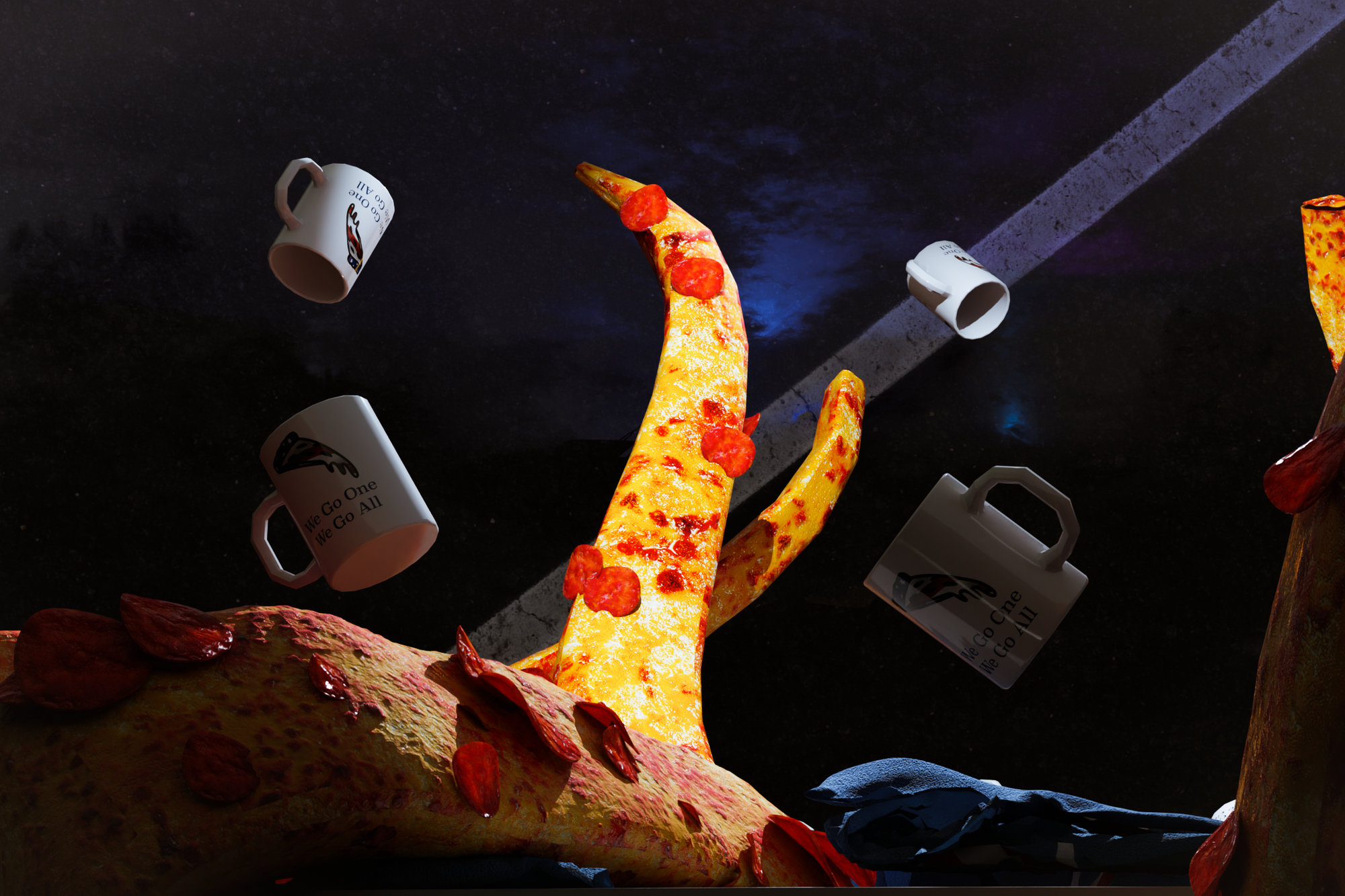
When did you start to take an interest in QAnon? Are we talking 4Chan days, or are you more someone who came in via Reddit, or Twitter, or what?
I first became aware of QAnon in late 2017, most probably through a post making fun of it from someone on leftist twitter.
It immediately grabbed my attention as someone who had spent a lot of 2016 (and sadly somehow a lot of 2020) debunking Pizzagaters, and in some ways I saw it as something that would be similar to Pizzagate.
I generally have a fascination with weird people of all types on the internet, especially conspiracy theorists, and Q seemed like the most interesting thing at the time, so I started looking through Q Twitter occasionally, which at the time was pretty small.
Once the QAnon Anonymous podcast started up, I moved away from doing my own research for a while, as they were keeping up with things much better than I could.
I’d say the majority of what I knew about Q pre-pandemic is from them.
When did you get an idea to start a QAnon Twitter account — and why did you create it?
I started to take notice of how incredibly big Q was becoming, especially with the spread of Q-adjacent anti-vaxx and ‘Plandemic’ movements.
People who knew me as someone who keeps track of Q were messaging me to say that their family members or other people they know had been sharing Q content on Facebook, and that’s when I realised that this was going to be huge.
It was roughly at this time that my girlfriend started noticing Pizzagate content on TikTok and that became a real concern to me.
Through all of this time, I had a real cognitive dissonance between Q being something that I found incredibly funny from this absurdist comedy point of view, but was also beginning to spread to a large portion of the population, possibly including children.
I started my Twitter account shortly after, with the initial intention of causing a bit of mayhem, and having fun and just generally using it to observe what was going on.

Many of my earlier tweets were outlandish conspiracy things, just to see how much traction that stuff could get from a totally random anonymous account, and I guess the algorithm picked them up as I started to gain followers pretty quickly.
What sort of stuff do you post? I guess my question is: What does the fictionalised you believe in?
The persona I created is one of the classic conspiracy-minded divorced dad, and I was posting the classic nonsense about celebrities being arrested or whatever, combined with some MAGA stuff.
More recently, I’ve turned the account in the MAGA direction, just until the threat of being banned subsides, although it feels like Twitter isn’t cracking down as hard on Q as it was a month or so ago.
I’ve generally tried to avoid engaging too hard with the anti-protest posting as that’s getting too close to home for me, although I’ll occasionally just retweet stuff to keep up the pretence.
Obviously I can’t guarantee this, but I try my hardest not to pill anyone who isn’t already a true believer, although this might be a futile exercise anyway.
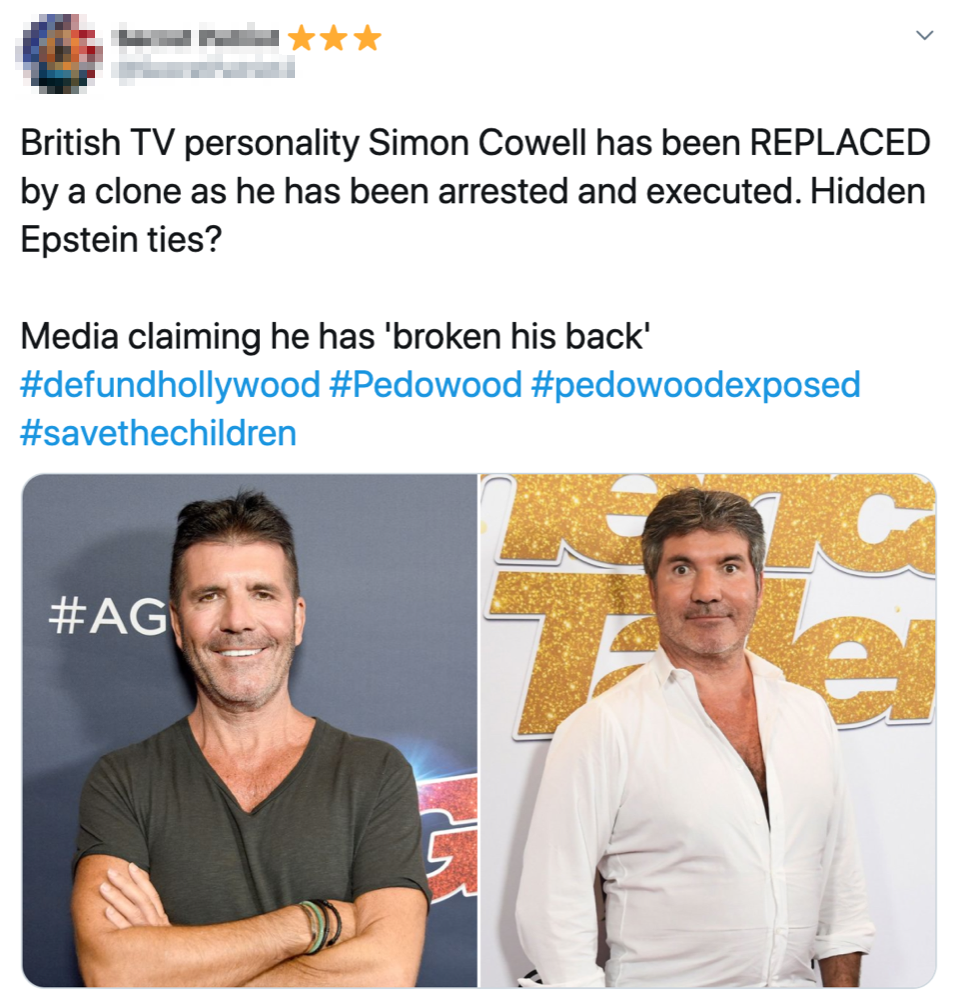
You started looking at Q as an outsider, but through creating this persona you’re seeing believers from the inside. What have you learnt?
Q feels very different from the inside, at least on Twitter.
The main thing I’d note that I hadn’t picked up on before is that a load of the ‘normal’ Q accounts post mainly about the same culture war stuff that every other American right winger seems to, but with this baseline belief in Q.
Twitter definitely has some selection bias as it only has one part of the Q movement, who tend to be your average MAGA people aged roughly 30 and up, and who tend to somewhat skirt round the more spiritual and ‘deep’ parts of QAnon.
One of the most insidious parts of QAnon has been how it’s absorbed almost every major conspiracy theory of the last 50 years.
And although some people on Twitter will signal to these, the majority that have been in my orbit have just been following a line that’s basically just ‘MAGA, but with people eating babies’.
To an extent, each platform seems to have its own version of Q:
Instagram has its new-age ‘pastel Q’ influencers, TikTok has kids screaming into the void about stuff they’ve just come up with, and Facebook seems to be really big on SaveTheChildren stuff.
The more sad and dangerous thing I’ve learned from this is how far down the rabbit hole some of these people are.
They’ve lost all their friends and families to Q, and many of them have really sad backstories.
In particular there’s this one disabled military veteran with PTSD and physical disabilities on there who, from what I can gather, seems to have been pilled by his girlfriend and now has these sprees where you can clearly see he can no longer draw the distinction between real life and fiction.
I think that’s a recurring theme in QAnon with these people who in some way or another discover how horrible the world can be, but without a materialist framework to explain it with, they turn to outlandish conspiracy theories to try and feel like they have some grip on their lives.
You mentioned to me earlier that the vibe in the QAnon community has shifted since you set it up. I think your words were "it doesn't feel fun like it used to". Can you expand on this?
I think prior to the pandemic, QAnon was on its way out.
The conspiracy became this hilarious set of sects who were constantly infighting, and it felt like the most outlandish theories were the ones getting the most traction, and it felt like the movement was ready to implode.
However, I didn’t bank on what would happen when people suddenly were faced with a combo of being stuck inside and needing an explanation for a world that suddenly got scary and, to the credit of QAnon’s main grifters, everyone seemed to pull together for long enough to attract a whole new group of people.
I think to an extent these new people were frequently very different from the core of Q believers who had come before them, and lots of this led to Q ‘himself’ becoming less important to the movement.
I think the first time I really starkly saw this was with the harassment of Chrissy Teigen. The movement that had previously been all about waiting for grand plans and decoding messages increasingly turned to targeted harassment and ‘surface level’ clues, which feels much more akin to Pizzagate.
Especially since the shift to SaveTheChildren, QAnon feels less ‘whimsical’ and weird than it used to, and is now something that feels much more streamlined and ready for the mainstream. And more likely to inspire people to commit acts of violence.
Has the audience for this bullshit changed? Like, I feel it started with teens on 4Chan, then drifted eventually into boomers angry and confused at their computers and turning up at protests. Now I feel it’s broken through to these innocent sort of idiotic influencers on Instagram, and young usually-switched on kids on TikTok. What the fuck is going on?
Despite having a central ‘figure’, Q feels to me like a very decentralised and modern conspiracy now.
Early on, I think it was probably a mixture of irony poisoned 4Chan and 8Chan teens who were doing this somewhat cynically, combined with some boomers who already had conspiratorial tendencies, and as things went along the teens either left or became true believers.
However, recently, there’s been a real shift in the demographics of QAnon and I think this comes from several different ‘pipelines’, such as (but not limited to):
- ‘MAGA to Q’
This is perhaps the most straightforward one, but until I joined Q Twitter, I hadn’t quite picked up how so many people seemed to be basically just MAGA but with some Q tendencies.‘Patriot’ Twitter has these things called ‘follow trains’ where you leave your username in a thread and retweet, and people come and follow you.The people taking advantage of these seem to be everywhere on the spectrum from Tea Party-style libertarians to full-blown Q conspiracy theorists, and I’d theorise that all of these people’s timelines become more varied in the ideas they’re viewing, and that they’re holding a belief in several ideological strains simultaneously.These trains seem to have worked both ways, and I’d say they’re responsible for diluting the amount of full single-issue Q posters. - ‘New-Age to Q’
This group began to pick up steam maybe late last year, but there’s been new-age spiritual tendencies in the movement for much longer.The wider ‘Great Awakening’ encompasses a lot of different spiritual movements (if you haven’t seen this map, it’s truly insane stuff), and in a way these people are almost doing it backwards, coming to QAnon already believing in light beings or 5D earth or whatever.This seems to be one of the two main strains of Q that spreads on Instagram, usually in new age wellness groups. - ‘Concerned Parents to Q’
I think a lot of parallels can be drawn between the 1980s Satanic Panic and the current SaveTheChildren part of QAnon, although concerned parents have been part of the movement much longer.These seem to be people, usually moms, who latch heavily onto the parts of Q that are about child trafficking and Satanic ritual abuse.I’m really just spitballing here, but I wonder if these people are the reason the movement went really heavily on moving the child abuse aspect to the fore? - ‘Pandemic Skeptics to Q’
This one somewhat speaks for itself.These are people who were suspicious of certain aspects of the pandemic, whether it be vaccines, testing statistic irregularities or some wider New World Order theory.These people seem to have been absorbed into Q pretty quickly, especially following the release of Plandemic.This seems to have been happening a lot on Facebook, at least from the anecdotal evidence I’ve had from my friends.
I feel teens are boarding the Q train, too — like, they’re the smartest out there and yet — here we are. It’s all over TikTok.
I think there’s also some wider things to be said about teenagers engaging in Q and Q-adjacent movements.
It’s been a real pet peeve of mine when people on the left share TikToks of teenagers doing dances to Socialist songs or using Soviet aesthetics with comments about how the kids are going to save us.
The internet has a way of making us forget that these are ultimately just children who regurgitate slogans they hear from others, without really having formed any core political beliefs, and this has been shown pretty clearly by the spread of Pizzagate and Wayfair conspiracy theories.
The initial wave of Black Lives Matter protests led to a lot of these kids sharing scattershot activist posts, almost at random or based on whatever the aesthetic of the post was, and I think this has led to this ‘you must post to do activism’ mindset.
Whilst these initial posts were BLM related (and mainly seemed fine, apart from some odd ones I saw getting basic facts wrong), these quickly led to people sharing their own issues (which again I am fine with), and there is a certain sect of teenagers that seems to keep compulsively sharing these activism posts without really checking the content.
With the recent growth of the SaveTheChildren movement, I’ve seen an increasing number of people sharing posts that get the facts on child trafficking wrong, which frequently come from accounts who share more insidious things that lean closer to Q; this is just the stuff I’m seeing on my personal Instagram feed, which is almost entirely made up of people who are otherwise left-leaning, intelligent people.
The TikTok algorithm definitely has a part to play in this too — my girlfriend frequently has Pizzagate, QAnon and SaveTheChildren posts in her feed, to children with little in the way of critical thinking ability, seeing people their own age talk about these cartoonishly evil things is more likely to make them believe them.
To a certain extent, I think these kids relate more to what Pizzagate was in 2016 than what Q is now — applying a kind of video game logic to the real world and putting together patterns of (often intentionally doctored or curated) ‘evidence’ to find ‘clues’.
Whilst it was very scary to watch kids on Twitter with #BLM in their bios engaging with Q accounts on the Wayfair conspiracy, I don’t think Q ever quite won over most of these kids, due to the amount of faith you have to put in Trump.
I don’t know if these kids think of themselves as being ‘pilled’ like some older people, and I’d say many of them more understand it through this twisted bizarre TikTok ideology which combines vague socialist aesthetics and ‘woke’ identity politics, but without any actual grounding in the systems that perpetuate the problems they talk about.
It’s much easier and more fun to talk about Disney hiding Satanic symbols and Justin Bieber putting out warnings in his videos than it is to talk about the global systems of capital and the mass exploitation of people in the Global South that actually perpetuates human trafficking.
Many people, especially teenagers, are so alienated from politics that the people they see on TV are the ruling class to them, and this stuff feels more like an extension of the culture war to me than it does anything new.
The final thing that ties all these groups together is the fundamental misunderstanding of the Epstein case.
I see Epstein being brought up a lot, especially, but not exclusively, in the groups of teenagers posting about Pizzagate, as this kind of ‘we know this stuff is real’ example when talking about things like cannibalism and adrenochrome.
I don’t quite know where to point the blame of this, but the media’s lack of real coverage of the victims of Epstein, combined with people’s fear of the banality of evil definitely plays a part. People need their examples of evil to be cartoonish and exaggerated so that they can deal with it in their heads.
I imagine that the Epstein case hit too close to home for a large amount of people who have been on the grey area on either side, and framing human trafficking as this movie-villain type thing is a kind of rationalisation to help people cope with it.
I should say that, as someone who myself was really thrown through a loop by the Epstein case, I can totally see where people could lose their grip on reality when they find out about powerful people from all over the world pretty openly participating in sex trafficking; it’s only been my understanding of global capitalism that has allowed me to understand the systems that Epstein and his associates exploited.

Oh - so you sell Q merch, right? You make money off QAnon believers. What do you sell? What happens to the money? Savings account? Beers? Charity? Is there a level of you that worries about the fact that you're essentially exploiting idiots and also possibly spreading the movement wider, as people wear your shit and introduce it to others?
I sell a few bits on a Teespring store — some of this has gone to bail funds through the BLM protests (I’m a skint student and was struggling to find enough to donate myself) and the rest has gone towards feeding my appetite for socialist theory books.
My feelings on making money off Q have changed quite a bit. When I started out, my idea of Q as a load of grifters ripping each other off made me quite comfortable with selling merch, but over time I’ve realised that quite a lot of people have genuinely been duped into believing this stuff.
My feelings would definitely change a lot if people started buying stuff en masse, but currently a couple of shirts doesn’t really make me too concerned with people spreading Q too far.
The likelihood is that if you’re pilled enough to buy a shirt, you’re probably going to be telling everyone you can anyway (and probably would’ve bought stuff off the various other grifters).

What is your long term plan with this? And actually, what is your short term plan? There’s an election in November, I imagine that is maximum revenue time coming up for you?!
Honestly, I feel like the account is at least somewhat finished in terms of being able to have influence.
If Twitter hadn’t started limiting the reach of Q accounts, things might be different, but engagement dropped off a cliff after they did (and this is definitely a good thing!)
For the moment, I’ll keep occasionally posting into the void for my own entertainment and using it to keep tabs on where the movement is going and to keep reporting accounts that are encouraging violence. I’ve had a good few taken down.
I’m not going to be especially pushing the merch around the election — I think that ship has already sailed, but, as always, I’ll be keeping up with what the new threads in QAnon are.
It’s going to be very interesting to see how far the GOP embraces Q and whether this will validate the followers… or make them go into more extreme conspiracy posting.
More extreme conspiracy posting. Just what we need. Can’t wait for November.
The evangelical component to QAnon
Before I sign off, there’s something else I’ve been thinking about in regards to people slipping into QAnon belief.
When I was a kid in the 90s, I was somewhat aware of the evangelical side of Christianity, and the Pentecostal movement.
If I could sum it up, I guess I’d say there was this big idea in Christianity in the 90s (and it sold a lot of books!) that were was this cosmic battle going on here on earth, right next to the reality we live in.
There were actual angels and actual demons vying for our souls — doing battle with swords and horses and all sorts of trippy shit. This wasn’t a metaphor or something happening in heaven or hell — this stuff was going on all around us. It’s literally called spiritual warfare.
At one point, UFOs even got dragged into this subset of Christianity: UFOs weren’t aliens, they were demons engaged in this big battle over our souls.
And part of what made this idea so appealing was that believers could take part in this battle, by praying.
There was a lot of imagery pulled from the Bible to propagate this idea. There was spiritual armour you could put on, and spiritual weapons you could use. It was an ARG — an alternate reality game. An interactive game that you can take part in.
It’s the same time of gamification that makes QAnon so appealing.
I think that part of the reason people are slipping into QAnon, is that there’s a whole generation raised on 80s Satanic panic and 90s Evangelical and Pentecostal Christianity.
Their minds are already primed for this idea that a giant cosmic battle can be a reality. Their brains accepted it once, they can accept it again.
QAnon provides all the same story — that there is this giant battle happening here on earth between good and evil.
They’re already used to interpreting vague passages of scripture, so it’s not a big leap to interpreting Q drops.
And while there’s no doubt that evangelical Christianity is slipping in the United States, I think even those “lost” souls are still more likely to dive into QAnon. Their brains were raised on this idea of a big giant battle between good and evil. So it’s easier to swallow or fall back into.
And so when I got Richard Parry to illustrate my interview with a QAnon grifter, I told him this was also ultimately a piece about belief.
I think the stories people choose to believe comes down to how good the story is.
And a story featuring a giant cosmic evil we can fight against is a really, really good story.
It’s why Clive Barker’s films are so epic. It’s why Lord of the Rings films and TV shows keep being created. It’s why HP Lovecraft popped off. It’s why religious yarns last for millennia. It’s why a lot of people got very fucking rich during peak 90s Evangelical Christianity.
And it’s partly why QAnon is so popular. It’s a big, epic, appealing story of good vs evil — and a story people can actively engage with, daily, online. And so that’s what Richard Parry’s giant, cosmic octopus represents.
Its tendrils have the ability to traverse time and space, to worm into our brains and fuck us up. And they’re covered in pizza. Disgusting, greasy pizza.
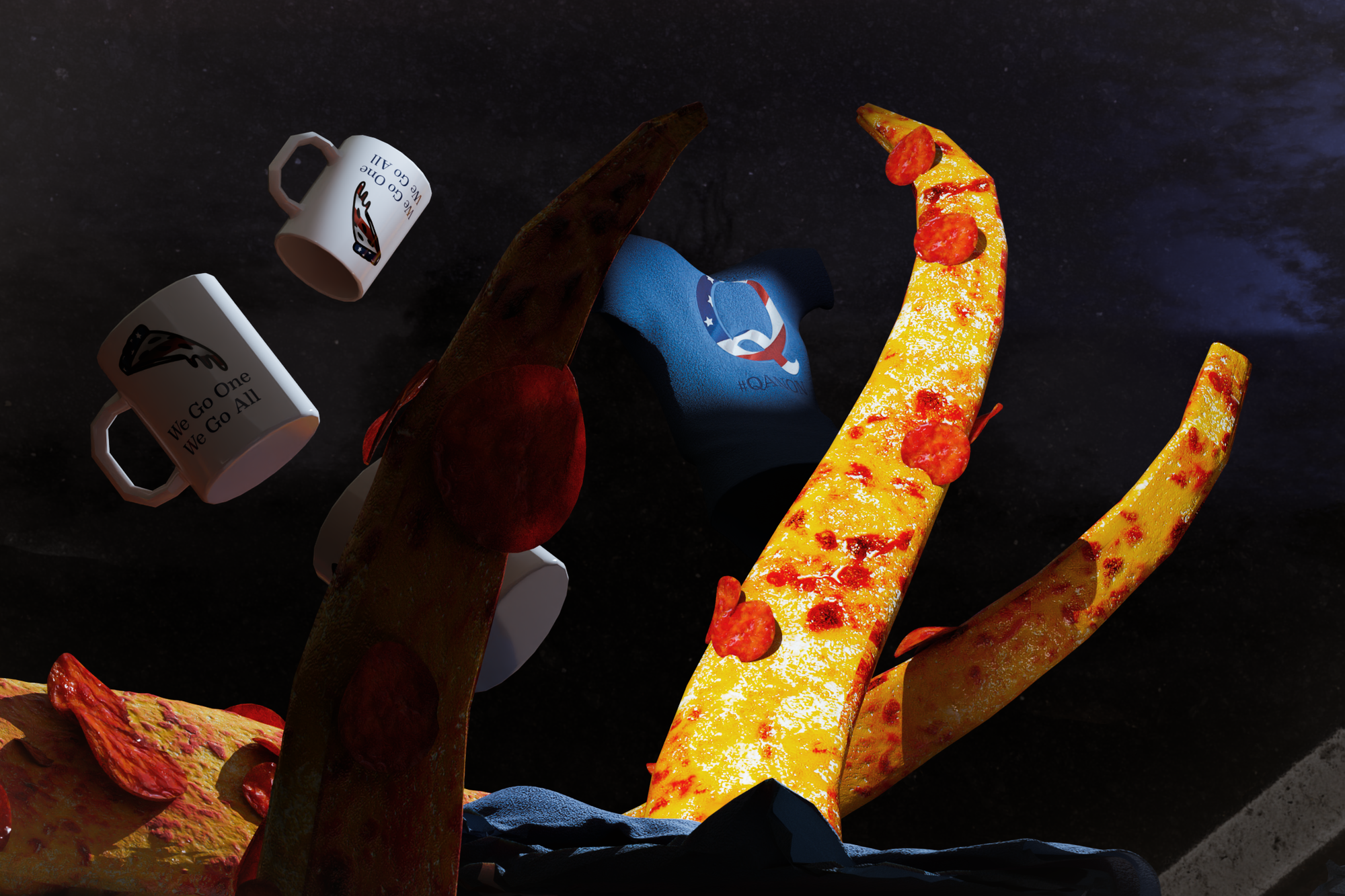
All of Webworm’s conspiracy coverage remains free, thanks to members. I think it’s important this stuff goes as far and wide as possible. Thankyou!
David.

